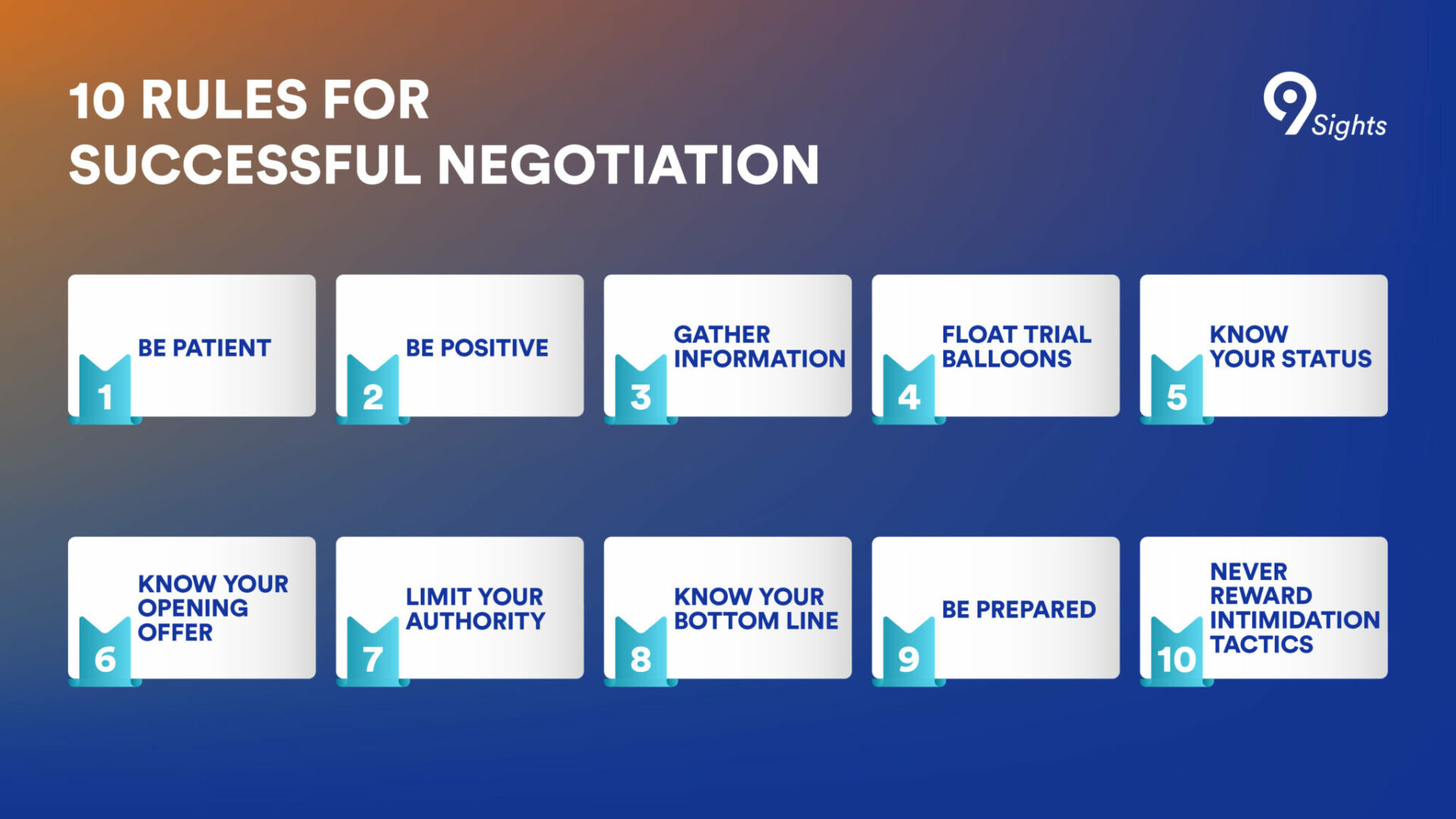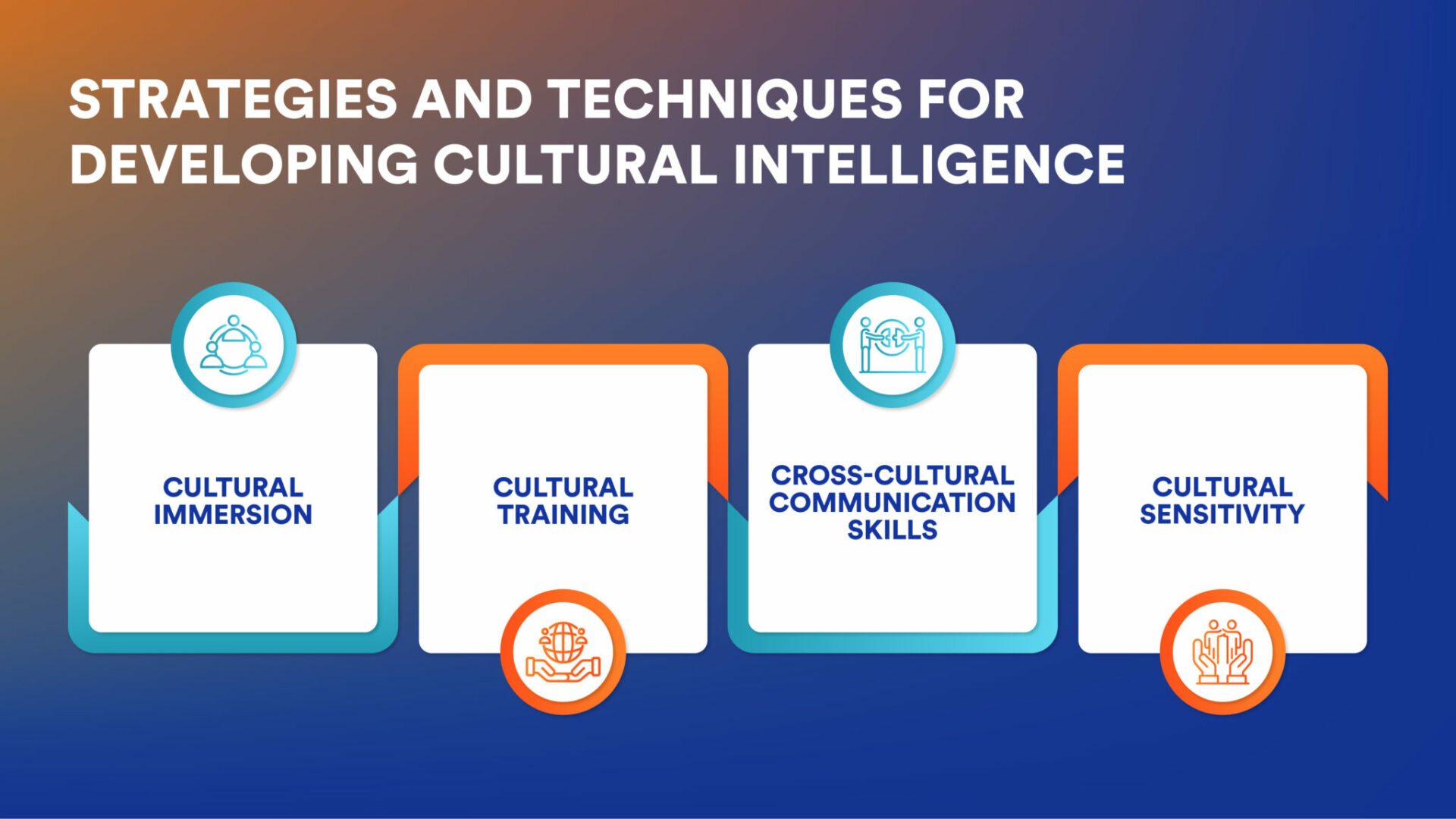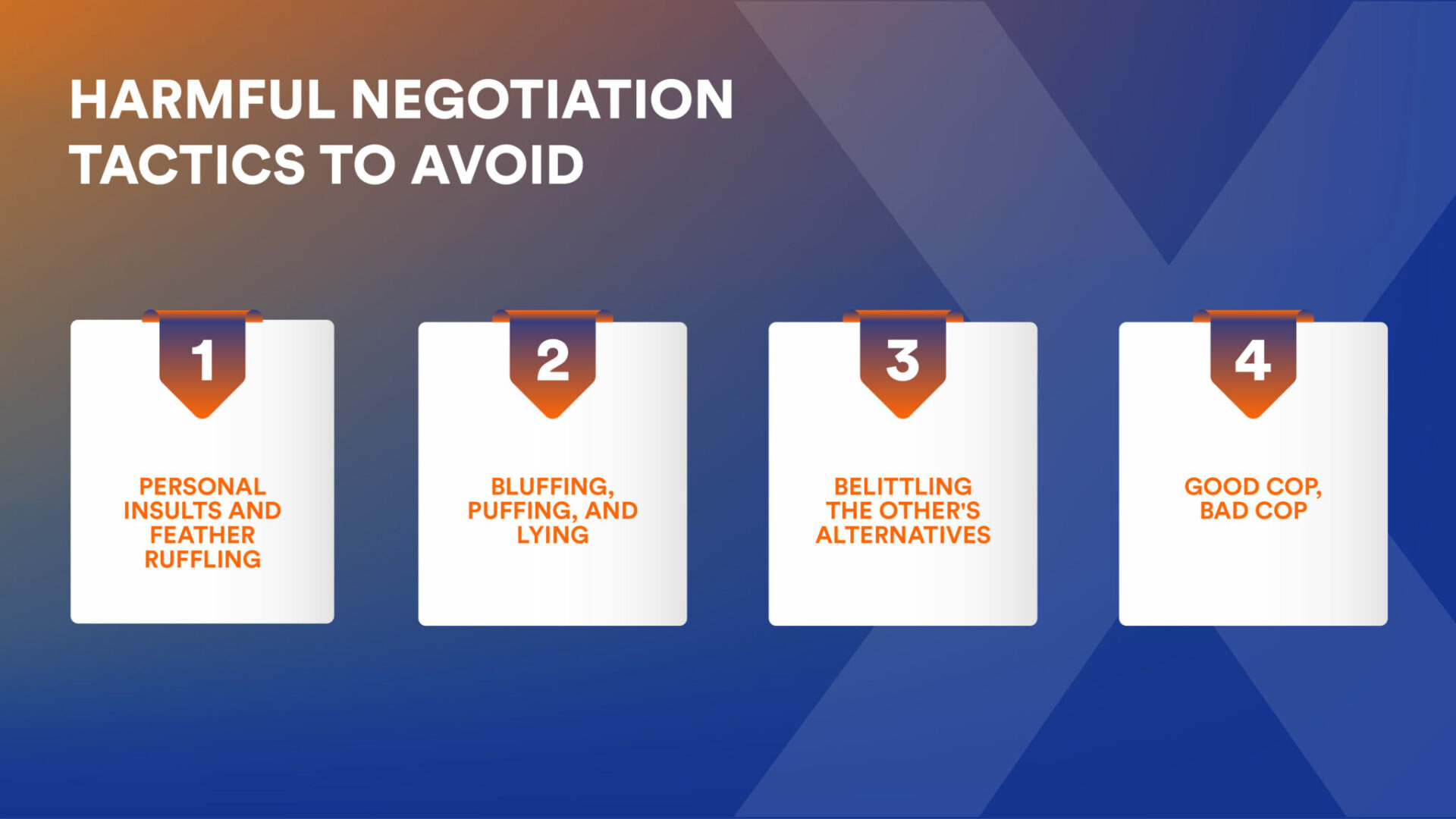From business contracts to resolving conflicts and making everyday decisions, negotiation skills are essential for navigating the complexities of modern life. By embracing new tactics, negotiators gain the skills to navigate complex situations with confidence, shape stronger relationships, and achieve mutually beneficial outcomes that create value for all parties.
10 rules for successful negotiation
Negotiation is more than a transactional exchange of offers and concessions. It is a comprehensive process requiring communication, problem-solving, and relationship-building abilities. At its core, negotiation is about seeking agreement between parties with different interests and preferences.
A masterful negotiator knows to obey these ten rules:
- Be patient.
- Be positive.
- Gather information.
- Float trial balloons.
- Know your status.
- Know your opening offer.
- Limit your authority.
- Know your bottom line.
- Be prepared.
- Never reward intimidation tactics.

Emotional intelligence in negotiation
Emotional intelligence (EQ) is a critical component of effective negotiation. It influences communication, relationship building, and decision-making processes. By understanding the principles and practices of emotional intelligence, negotiators can enhance their ability to:
- Navigate complex interpersonal dynamics.
- Manage emotions effectively.
- Forge stronger connections.
Negotiators with high emotional intelligence are better equipped to navigate challenging situations, build trust, and reach mutually beneficial agreements.
An emotionally intelligent negotiator must possess:
- An ability to identify one's own emotions and those of others.
- An ability to harness emotions and apply them to tasks such as thinking and problem solving.
- An ability to manage emotions, including the ability to regulate the negotiator's or mediator's own emotions.
- An ability to affect the emotions of others in the negotiation process.
Cultural intelligence in cross-cultural negotiations
Cross-cultural negotiations present unique challenges due to differences in language, communication styles, values, and norms. Due to globalization, they became more common and successfully navigating such a global environment requires cultural intelligence (CQ)—the ability to understand, appreciate, and adapt to different cultures. Negotiators who improve their CQ can become more effective, get better deals, and build stronger relationships. Cultural intelligence comprises four elements:
- Motivational CQ (CQDrive)
- Cognitive CQ (CQ-Knowledge)
- Metacognitive CQ (CQ-Strategy)
- Behavioral CQ (CQ-Action)
Developing cultural intelligence is a continuous process that requires self-awareness, curiosity, and a willingness to learn. Below are some practical strategies and techniques for developing cultural intelligence:
- Cultural immersion: Integrate into another culture, interact with locals, and understand the way others live.
- Cultural training: Participate in cultural training programs to gain insights into cultural norms, values, and communication styles.
- Cross-cultural communication skills: Develop effective cross-cultural communication skills, such as active listening, empathy, and nonverbal communication.
- Cultural sensitivity: Approach cross-cultural interactions with an open mind and a respectful attitude, recognizing and respecting cultural differences.

Data-driven strategies
Our world has started to rely more and more on data and this helps negotiation, too. Negotiation strategies can benefit immensely from insights derived from analyzing relevant data, such as:
- Gain a deeper understanding of the negotiation landscape.
- Identify opportunities for value creation.
- Make informed strategic decisions that lead to favorable outcomes.
Data provides negotiators with empirical evidence and insights into market trends, competitor behavior, benchmarks, and best practices, enhancing bargaining power and maximizing negotiation value.
Agile negotiation principles
Agile negotiation principles provide a flexible framework for negotiators. This framework helps negotiators respond effectively to changing circumstances, collaborate, and achieve mutually beneficial outcomes.
The agile negotiations approach adheres to four key principles:
- Reinforce trusted relationships.
- Control the negotiation with confidence.
- Treat value persuasion as a process.
- Seek mutually successful outcomes.

Foot-in-the-door tactic
The foot-in-the-door technique is a tactic that uses a small, initial request to increase the chances of someone agreeing to a second, larger request. This technique can be used when a negotiator’s goal is to achieve similar outcomes.
For example, if you want to buy a shirt that is $10, you might haggle with the vendor to get it down to $5. You could then follow up by asking if you can buy two shirts for $10. Not wanting to feel contradictory about giving you the initial discount, they’re likely to allow the second one as well.
Door-in-the-face tactic
The door-in-the-face technique is the opposite of the foot-in-the-door tactic. Here, the negotiator makes an unreasonable initial request that they expect to get turned down. After the first unreasonable request is denied, the negotiator follows up with a smaller, more reasonable request. The other party feels compelled to agree to this smaller request after denying the initial larger one.
The door-in-the-face tactic is effective when the negotiator wants to increase the likelihood of someone agreeing to a small request – like asking to borrow $20 after initially asking for $100.
The Bogey tactic
A bogey is an issue that negotiators pretend is important to the ones they negotiate with, but really isn’t. They end up conceding this issue so the other party feels like they should do the same for them.
This strategy is based on the psychology of reciprocity, a social norm where one person reciprocates a favor, causing the other to reciprocate the favor.
Avoiding harmful negotiation tactics
When negotiating with other parties, people should also consider future negotiations and relations with the same parties. For a fruitful and respectful relationship, here are some tactics that are best to be avoided:
- Personal insults and feather ruffling: Personal attacks can feed on insecurities and make the others feel vulnerable.
- Bluffing, puffing, and lying: Exaggerating and misrepresenting facts can throw people off guard. The advice is to be skeptical about claims that seem too good to be true and investigate them closely.
- Belittling the other's alternatives: One party might try to make the other cave in by disparaging and belittling their other main option, also known as BATNA (Best Alternative to Negotiated Agreement).
- Good cop, bad cop: When dealing with a two-negotiator team, one person may be reasonable while the other is tough. Remember that they are working together and do not fall for hard-bargaining.

Our delivery lead, Adriana Minastireanu put this piece of content together to concentrate all the best knowledge on negotiation she has after years of experience in onboarding and retaining customers. Mastering negotiation requires a diverse skill set, including communication, persuasion, planning, strategy, and cooperation. Understanding these soft skills provides a critical foundation for becoming a stronger negotiator.






